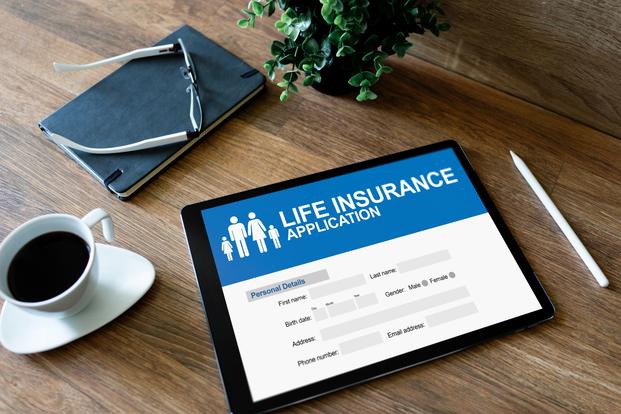When I was a teenager, a friend of mine lost his father in a tragic accident. Not much later, his family had to move to make ends meet financially, and chaos ensued. Unfortunately, his dad's death was just the first domino to fall. As I look back on it, a lot of what happened probably would have been mitigated if the family had adequate life insurance.
Death is tough on the survivors, and that's especially true if they are squeezed both emotionally and financially. Looking back, I think that's my first early memory regarding life insurance -- or the lack thereof.
So what about you? If you die unexpectedly, how would your survivors get by? Would the financial strain compound the emotional one?
In the military, Servicemembers' Group Life Insurance is the cornerstone of a set of benefits that will help ease the financial stress on your loved ones if something happens to you. SGLI alone can provide up to $500,000 for your family if you pass away. Unfortunately, when you leave the military, you leave these great benefits behind as well. In most cases, 120 days after you step into the civilian world, your SGLI coverage stops, leaving you with no life insurance unless you've made other arrangements.
The first step is to assess your coverage months ahead of the move to civilian life. In most situations, some time with a life insurance calculator such as the one on the Department of Veterans Affairs website will make it clear that it will be important to maintain some level of life insurance coverage. With that in mind, there are two ways to handle a shortfall:
1. Purchase a Non-VA Policy
One option for replacing SGLI is to purchase either a term policy or a permanent policy on your own, outside of VA-related programs. Because individual policies require medical underwriting, they generally have lower premiums than insurance obtained by converting your SGLI to a VA-related term or permanent policy. They're also portable, which means you own them regardless of who you work for in the future, mitigating the uncertainty of buying a policy from your civilian employer. If you pass the medical requirements to get one of these policies, this can be an attractive approach to replacing your SGLI.
Another way to replace your SGLI outside of the VA is by getting group term insurance from a civilian employer. Though this typically is a low-cost option, there are at least two major drawbacks to this approach. First, your insurance will once again be tied to your employer. Second, this type of insurance is typically offered in multiples of annual income, which means you may be limited to getting coverage that's only one or two times the amount you earn. For example, if you earn $50,000, your maximum amount of life insurance might be twice that amount -- $100,000. So depending on your salary, you might not be able to get the level of coverage you need.
2. Purchase a Policy Through a VA Program
If a non-VA-related policy isn't an option because you don't meet the medical requirements, the VA has two SGLI conversion programs that don't require medical screening. One program offers conversion to a renewable term insurance policy (Veterans' Group Life Insurance), and the other offers conversion to a permanent insurance policy, such as whole life or universal life offered by traditional insurance providers participating in the program.
While potentially more expensive than policies not connected to the VA, the main draw of the conversion programs is that neither requires health checks or questions, provided the conversion occurs within 120 days of separation from the military.
In the end, we all hope to one day look back on the money we spent buying life insurance and realize we didn't need to. But one of the sad realities of life is that at some unpredictable point, it ends. So take steps to ensure that if it happens to you sooner rather than later, your family won't be caught short.
Keep Up With Military Pay Updates
Military pay benefits are constantly changing. Make sure you're up to date with everything you've earned. Subscribe to Military.com to receive updates on all of your military pay and benefits, delivered directly to your inbox.




